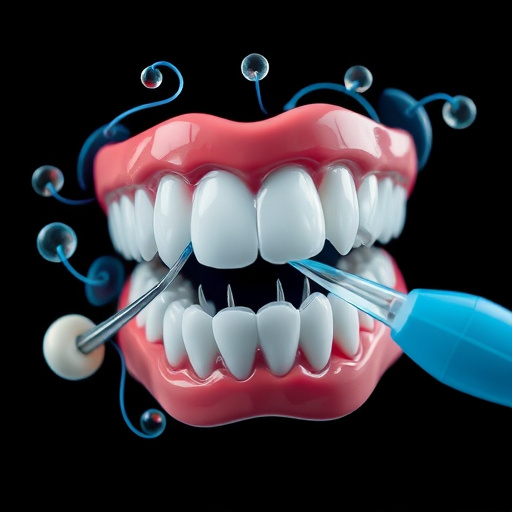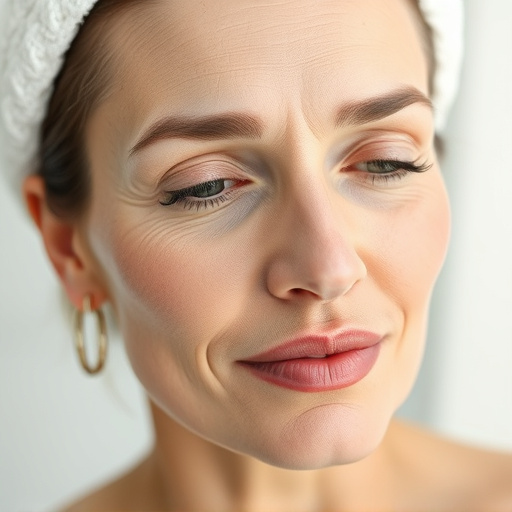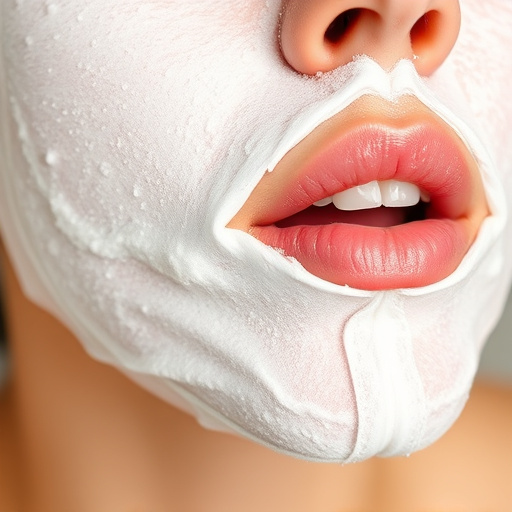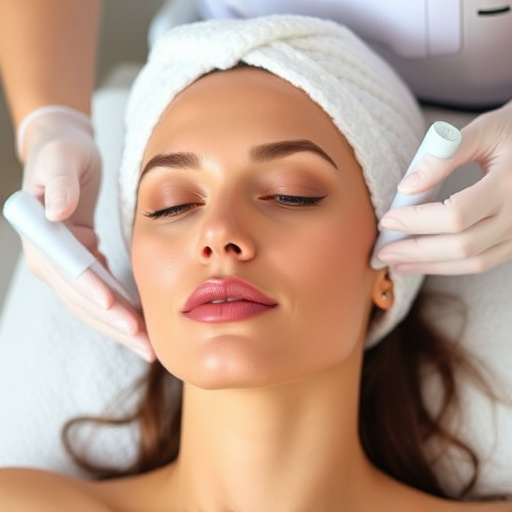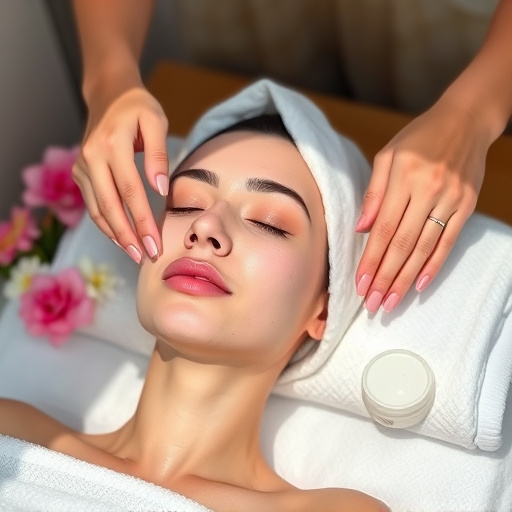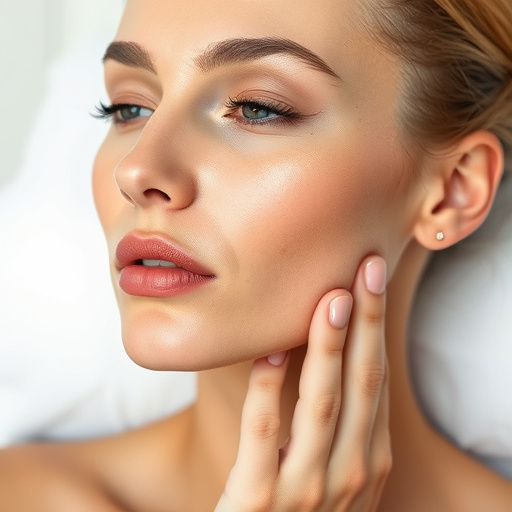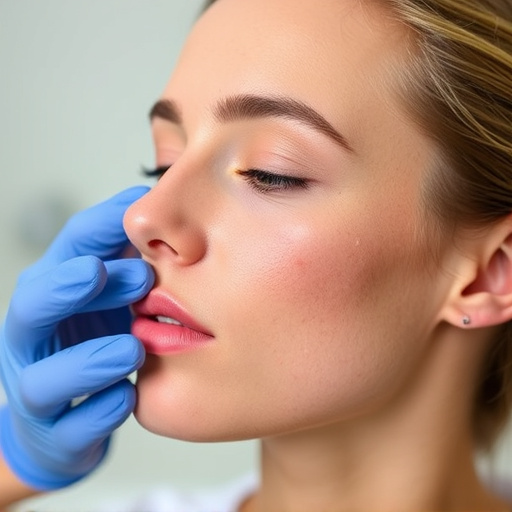If acne persists beyond adolescence and doesn't respond to over-the-counter treatments, consult a professional for hormonal acne treatment. Personalized plans consider family history, menstrual cycles, and stress levels, targeting sebum production, clogged pores, and inflammation. Recognize hormonal imbalance signs like irregular periods or mood shifts. Dermatologists offer diverse options including facials, skincare routines, oral contraceptives, and light therapy.
Hormonal acne can be stubborn and recurrent, affecting individuals beyond adolescence. Recognizing specific patterns like monthly or cyclical breakouts is key to identifying hormonal imbalances as the root cause. If over-the-counter solutions prove ineffective, it’s time to seek medical advice. Understanding hormonal shifts and their impact on skin is crucial for effective treatment. A dermatologist can offer personalized plans tailored to individual needs, addressing underlying issues for lasting hormonal acne treatment.
- Recognize Persistent Acne Patterns
- Understand Hormonal Imbalances
- Consult a Professional for Personalized Treatment Plans
Recognize Persistent Acne Patterns

If your acne persists beyond adolescence or doesn’t respond to over-the-counter treatments, it’s time to recognize that something more complex might be at play. Persistent patterns of acne can signal hormonal imbalances that require professional attention. This is especially true if you notice certain characteristics in your breakouts—like clusters of red, inflamed bumps (known as cystic acne) or regular occurrences around the same areas, such as the jawline and neck.
Understanding your body’s unique response to hormones is key when considering hormonal acne treatment. A personalized skincare approach that accounts for factors like family history, menstrual cycles, and stress levels can help target these underlying issues effectively. Remember, seeking advice from a dermatologist or healthcare professional isn’t just about managing visible symptoms; it’s also about addressing the root causes to prevent future breakouts and maintain clear, healthy skin through tailored solutions that may include topical treatments, lifestyle changes, or, in some cases, procedures like body contouring for severe scarring, alongside focused efforts on wrinkle reduction.
Understand Hormonal Imbalances

Hormonal acne is a common skin concern often linked to fluctuations in hormone levels, particularly during puberty, menstruation, pregnancy, or menopause. Understanding hormonal imbalances is key to effective hormonal acne treatment. These changes can lead to increased production of sebum, the oil that coats your skin, causing pores to become clogged and inflammation to ensue. Various factors contribute to these hormonal shifts, including genetics, stress levels, diet, and environmental influences.
Recognizing the signs of hormonal imbalances is crucial. Aside from acne, symptoms may include irregular periods, excessive hair growth, thinning hair, weight fluctuations, and changes in mood or energy levels. If you suspect a hormonal imbalance as the root cause of your persistent acne issues, consulting a dermatologist or healthcare professional is recommended. They can provide guidance on suitable facial treatments or refer you to specialized medical spa services for anti-aging treatments tailored to address these specific concerns.
Consult a Professional for Personalized Treatment Plans

When considering hormonal acne treatment, one of the most crucial steps is consulting a professional dermatologist or skin specialist. These experts possess the knowledge and expertise to create personalized treatment plans tailored to your specific needs. Hormonal acne can vary greatly from person to person, and what works for someone else might not be suitable for you. A qualified professional will assess your unique situation, taking into account factors like age, overall health, lifestyle, and medical history.
By seeking their guidance, you gain access to a range of effective options, including specialized customized facials and targeted skincare routines. They can recommend the most appropriate treatments, such as topical medications, oral contraceptives, or even light therapy, to address the underlying hormonal imbalances contributing to your acne. Personalized skincare is key to achieving clear, healthy skin, and with the right professional support, you can embark on a journey towards a glowing, clear complexion and improved overall well-being.
If you’ve tried over-the-counter solutions without success, it’s time to recognize that hormonal acne treatment may be necessary. Understanding your body’s unique hormonal patterns and consulting a medical professional can lead to tailored, effective solutions for managing and reducing hormonal acne. Don’t let persistent acne impact your confidence any longer—take control with personalized guidance and discover a clearer complexion ahead.


